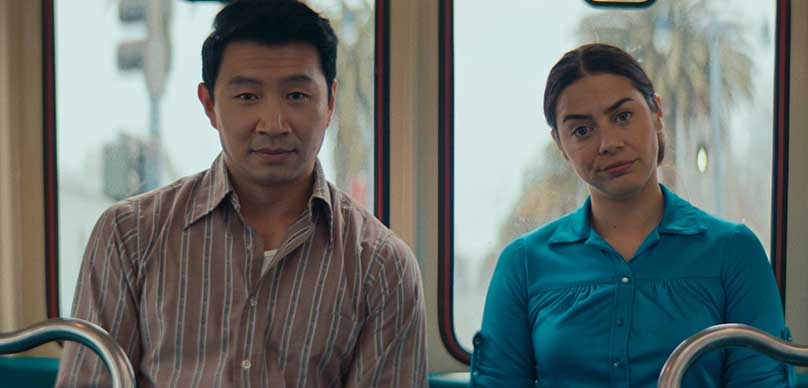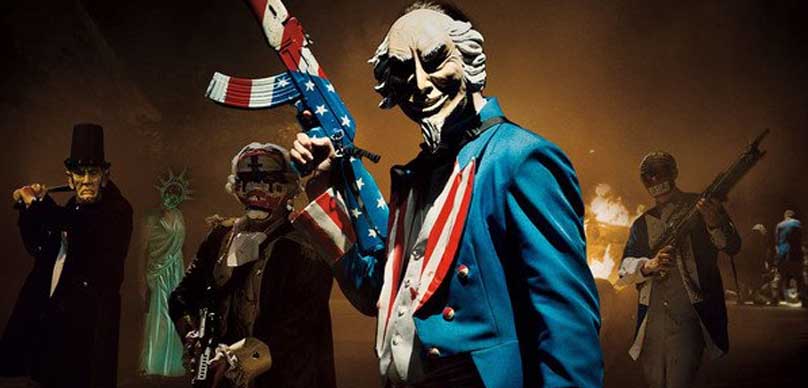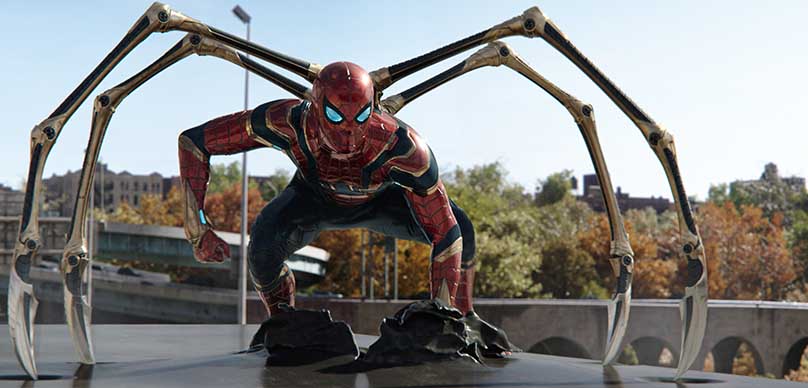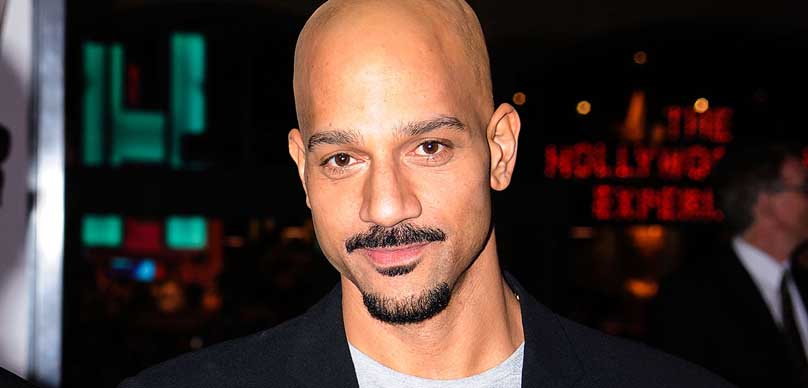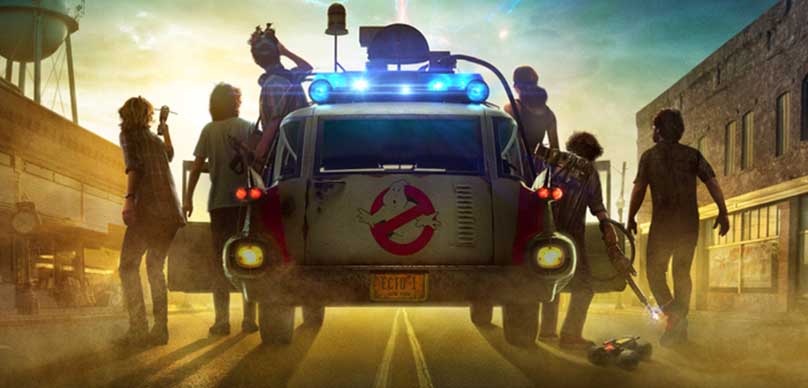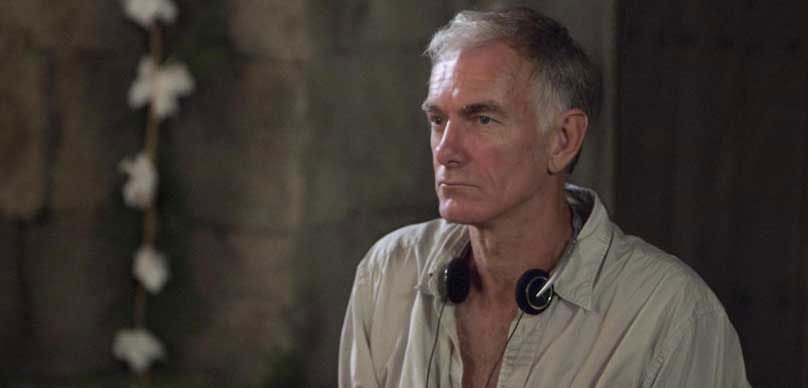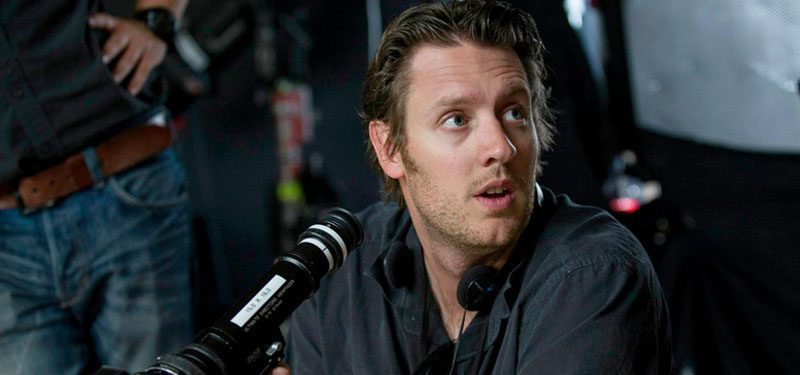Today on the show we have writer, director and producer Lissette Feliciano. She is a Tribeca Film Institute AT&T Untold Stories grant recipient, was named as one of Shoot Magazine’s new directors to watch, and has served as an ambassador for The Wraps Power Women Summit.
Her production company Look at the Moon Pictures develops original content that shines a hero’s lens on underrepresented groups, joining the ranks of creators filling the market gap in storytelling for a new young multicultural audience.
Under Lissette’s leadership, Look at the Moon was among the first production companies to mandate 50% BIPOC representation across leadership positions on and off-camera – a metric they are proud to consistently achieve. An avid supporter of young women’s education, she sits on several committees for an all-girls high school serving low-income students in her hometown of the Mission District of San Francisco.
Her latest film projects is Women is Losers.
In 1960s San Francisco, a once-promising catholic school girl, Celina Guerrera, sets out to rise above the oppression of poverty and invest in a future for herself that sets new precedents for the time.
The film was produced independently and picked up by HBOMax as a major release on its platform. A true cinderella story. We discuss how she financed the film, her struggles with production, getting her amazing cast and much more.
Get ready to be inspired. Enjoy my conversation with Lissette Feliciano.
Right-click here to download the MP3
LINKS
- Lissette Feliciano – Production Company
- Women is Losers – Instagram
SPONSORS
- Bulletproof Script Coverage– Get Your Screenplay Read by Hollywood Professionals
- Audible– Get a Free Screenwriting Audiobook
Alex Ferrari 0:00
I'd like to welcome to the show Lissette Feliciano, how you doing?
Lissette Feliciano 0:16
Hi, I'm good. How are you?
Alex Ferrari 0:17
I'm doing very good. Thank you so much for coming on the show. I am. I am. I'm excited to get into because you have had a obviously you just made it overnight. I mean, you just started this, like, what yesterday, and you just automatically just got the first movie done. And it was like it happened like within two, three months, right? Something like that. Right?
Lissette Feliciano 0:35
Yeah. Crazy. It was super fun day was like, I'm gonna be a director. And it happened.
Alex Ferrari 0:40
It just happened, right? And then, and then the money just starts piling in. They did bring the truckloads of cash, and they just dump it. It's something like that's the way it works.
Lissette Feliciano 0:49
Yeah, totally. I don't know where to put all of it. It's a thing in it. Like, this
Alex Ferrari 0:54
It's like a scene of like a scene from Narcos like I've got too much cash, man, I can't
Lissette Feliciano 1:02
Moving into moving into the house from casino very soon.
Alex Ferrari 1:06
Very nice. Very well played. Well played. No, I wanted to have you in the show. Cuz you know, you've had a, you know, you had a journey to say the least on getting your first film made. So let's start from the beginning. How did you get started in this business? And why did you want to get into this crazy business?
Lissette Feliciano 1:24
Dude, I asked myself that all the time, thank you. Yeah, man, like all like crazy round around the globe, like circle to get to this point. Like, I you know, I grew up in the Mission District of San Francisco, if your audience is very familiar, but you know, it's basically the Latino area of San Francisco. Now, it's the tech area, my neighbor is, you know, good old Facebook, which has been fun. It's been cool to see it like change in a weird way. But yes, I went there. And I was, you know, I brought a lot as a kid, because it was just like something that I could do that would kind of keep me busy. And there was a lot going on at home, as some of your odd as your audience will know, because the movie is based on my family. So you know a lot about me base like how I grew up in and in and around that that situation. And I was just, I realized that like, I liked writing and people liked reading it. So, you know, I wrote myself into a better High School. And then I somehow wrote myself into NYU, had no idea what the hell NYU was. True story. We had a guidance counselor who got money together, pooled money together to take girls on college tours, because we couldn't, that was too cost prohibitive for us, we'd all of us were going to local to local schools. She's like, why aren't you guys even trying for hardware? And we're like, first of all, what the hell is Harvard? And second of all, where's Boston? Like, we just these things that like now seem crazy, but I had no idea. Sure. So I want to go into NYU, just shocked. Everybody shocked myself, I had no idea what I was getting myself into. And went there and very quickly learned that filmmaking was a really cool way to put writing, and acting and theater altogether. And that you could pack it in, pack it into a digital file and send it to loads of people who couldn't come to like your local theater. So anyway, so I went there. And then I decided, Okay, I'm gonna go out to Hollywood and be a dire ctor. Right? That's what I studied. And
Alex Ferrari 3:25
I mean, yeah, so yeah, you studied directing, you go to Hollywood, because that's where the directors get jobs. And that's where they make movies. So I'll just get there and get my first job. And I'll just knock on a couple doors and it should be fine.
Lissette Feliciano 3:38
So, so fine, I'm not fine. It was 2012. And I don't know if people really remember this, but like it, it was four years before me to four years before BLM and even those four years were so different, like the shift of being like I'm a female director, I'm also Latina and you know us born Latina, but nonetheless, like that was like not even a thought in anybody's mind that that could be something available to me and then me to happen and BLM happened. And it started becoming like, Oh no, but we need this so I am definitely a beneficiary of how the industry has shifted even in the last decade that I've that I've been in it so anyways, I came out here started a PA I think my first job was like picking up trash in like Selena Gomez is trailer I was like our handle on things when finding movie was insane. Working, you know, working 22 hours a day, no breaks, nothing minimum, like stand with it guys. And yeah, it just wasn't you know, I kept making writing and kept making proof of concepts and just doing everything I could to say I'm a writer, I'm a director, I'm going to do these things. And, you know, had a couple of projects Like not go or go. And I just kind of noticed that after a while, it was less about my experience. And more about it me being me that was coming into the room. So it wasn't like anybody and you probably knows, but people don't actually say that you can't do something they never like there's no no evil person in the room going, Yeah, that doesn't happen. It's just they don't say anything. It's just very quiet, right? It's like, and then they kind of laugh a little like smile a little like, Oh, you're so ambitious good for you.
Alex Ferrari 5:30
You've got spunk kid, your spark,
Lissette Feliciano 5:32
You got funk, your Sparky, you know, like, going, it's been a be great for you. But then there's no actual help or support, right. And so I'd gone through that process twice. And then by the third one, by the time when those losers came around, I was like, I can't go through that process. Again. I'm just going to do this for myself at this point. And by the time I'd producing commercial that made a little bit of money, and that production company was able to, you know, co financing and get here. So it really was a bootstrap mentality all the way.
Alex Ferrari 6:02
And you went into commercials as well.
Lissette Feliciano 6:05
I did. Yeah. Cuz it was crazy. Alex, like people would give me millions of dollars to produce a commercial. I'm not great at spreadsheets. I'm terrible at spreadsheets. But for some reason, the mentality that I could produce was just like a given. But then the second I wanted to direct it was like, Whoa, yeah. What do you mean? Do you know where to point the cameras? Again, not just me. I know where to point the camera more than I do where to put the spreadsheet. But you know, is this about taking my taking my disadvantages and making them into my own advantages?
Alex Ferrari 6:38
Yeah, no question. I mean, I literally felt the same exact. When I was coming up. I was doing commercials works as well, Miami. And I remember, like, my reps, were saying, Hey, if you, if you do a Spanish commercial, you're done. Like, I couldn't do a Latino commercial. Because if anyone finds out in the general market that you did Latino commercial dates, they just won't let you do general market commercials. Because you can't I'm like, but the lights are the same people. I mean, the camera lens hasn't changed. Why? Because you're speaking a different language. And that was the mentality back in the 90s. You know, when I was coming up, it was crazy. So I I understand, you know, it was it was a crazy time. But yeah, so you get into commercials, which I feel is a great, great proving ground for directors. I mean, really, Ridley and Tony were the ones that kind of broke the door open. And then I mean, the plethora of directors that came from the commercial world is great. So alright, so you so then you write the script for women is losers? How do you? How do you begin to get something like this made? Because it's not like, obviously, this is going to make a boatload of cash. So let's, let's throw as much money at this as we can, like, how did you? How did you approach this?
Lissette Feliciano 7:57
It was just that I'm glad it was a decision. I'm going to do this. I don't know which hat like at what scale I'm going to do it but in a year, this film will be done. And it really was just that decision. And then having getting that decision kind of pushed forward. Every there was just wasn't an option to not do it anymore. And I wasn't going to wait anymore. I wasn't going to wait to be given permission. I wasn't gonna wait for somebody to potential me it just wasn't gonna happen. So, you know, I started very small, and then we, you know, f9 out to talent, first and amazing casting director. And you know, she very quickly we found the Renza. And I think once Lorenzo came on board, it just started clicking for people are like, Oh, I see Celine, I see what you're trying to do here. I kind of go from there. We'd also had a short film prior to this like so I'd done a short film about it was like my fifth short film. And I've done a short film and you know, like, mostly times in short films, people nobody comes up and talks to you. You're kind of like the opening previews for something else. This time, though, people wanted to talk to me. And so they wanted to tell me that like, Oh, it's a that's me. That's my sister. That's like everybody. So I was like, Okay, this this just hit a nerve. And hit me think about that going forward. And I think a year later I decided to make it into a feature length because so many people had been like, I want to see that more of this. I was like, Alright, let me just follow the market here. And yeah, that's how it kind of it kind of it kind of came to life.
Alex Ferrari 9:26
Now the movie it's beautifully shot. I mean, it is a film that is a period piece so they're so you know, you could you couldn't make it you could only make it so much harder on yourself as a first time feature directors. Oh, let's do a period piece. Let's do it about this subject and that you know, so it's it's a lot of a lot of obstacles, but it looks great. How did you raise the financing for this and how did you because this was not like HBO wrote you a checking like, let's just go do your thing, girl. Like that wasn't the case.
Lissette Feliciano 10:01
No, no way at all. It was more about like finding something, the financing. It's always tough, right? I think for your first movie, there's a snippet, someone's gonna come and give you what however much money to do something like that just was hasn't been the case for like me or any of the directors I know it was always something about them scraping together whatever they had to make it work. And the people that I saw do that successfully were the ones that not only embraced their budgetary concerns, but used it as part of the story. Close out being Zhao being the most famous example of that. So the financing was just kind of a little bit of everything. It was what I had saved from work, it'd been a couple of different people that were you know, giving a small amount or a big amount, and really writing that into the script. So yes, I wanted to make a period piece as my first movie, which people were like, you're insane. I was like, I don't care. They kept telling me you're one room movie, it was a one room movie in a period piece there. They're hard either any movie is hard to make. And I just didn't want it just kept being like I kept being asked to play small. I was like, Look, I'm creative, I can find a way to work this to work this disadvantage into the story because the story is about a woman doing that. Right? It's very meta, like what she was going through in the scenes as well. I was going through behind the scenes and the cast to to, to their credit, like a lot of them felt the same way of like being Selena to everybody that came to the story from Brian Craig to Chrissy fit to SEMA Lou to Lorenza, they all had a version of the story for themselves about what it's like to make, you know, make gold out of lead, essentially.
Alex Ferrari 11:40
Alchemy, Alchemy, essentially, you're
Lissette Feliciano 11:43
Definitely some alchemy.
Alex Ferrari 11:46
Now, what inspired you to write this in the first place?
Lissette Feliciano 11:49
My mom, my mom, I had a conversation with her around the time that I was making the short film. Because I, you know, had gone through I paid my dues. I had done all the steps that people had told me to do do this, and then this will happen do this in this business will happen. But every time I got to that step, it felt like the goalposts kept moving. So I obviously internalized that and said, Well, that's because I'm just not that good. That's what's happening. Like, I'm not that talented. And I had to go and tell my mom, this that I failed, essentially, and was like, I'm sorry that we spent all this money. And all this time doing going after this dream. It's not working. And I'm sorry, and I'm ready to let it go. And you know, we'll figure it out. And she was like, No, that's not what's happening. This is what's happening to you. And for the first time in our life, she told me everything that happened to her in the 70s and showed me receipts, Alex, you saw my receipt, she showed me a letter from her boss saying Congratulations on the birth of your son, your two weeks vacation is over time to come back to work. Like she had a C section, you know, so like this thing that I had no idea about that were like real for women of the time period. And that she had lived through this. So I just saw some similarities in between what was happening in her life happening to me. And I wanted to create a story that celebrated that like, you know, you're all looking for your superhero movie, but it turns out my superhero was right under my feet the whole time.
Alex Ferrari 13:18
Oh, that's a great, that's that's so amazing. Because we all need a little we all need champions. Because the struggle is real. There's no question about it. And as filmmakers, especially after a certain amount of time, you just like, is it? Is it me? Am I not? Am I not good enough? Am I Am I not? Like what? Because you Right? Like so many of us go through this process of like, I did this, I did this, but the goalpost just keeps moving, or the doors don't open. And I've always found and after interviewing as many people as I've interviewed on the show, I found that it's only when you start touching something that is true to you. It's a story that you can't, that no one else can tell. But you that's when doors start opening up because that's the secret sauce. That is your secret sauce. Like I can't tell your story. You can't tell my story. It is something so specific to us. So I think if filmmakers start to find that thing inside them, and not be afraid, because a lot of people would be terrified to put your your film out there. And that script out there is pretty personal, to say the least.
Lissette Feliciano 14:24
Yeah, which part? You're so right. It was just about like coming in to that piece of saying Who am I what do I want to be saying? And being really vulnerable? Like, it was really I don't think I really hit me until like South by happened. Like the night before South I was like, Oh my God, what did I do? Everybody's gonna see this. There's no way to get this back. And just being really, you know, like, I'm putting my grandma out there. My grandfather, my mother, my brother myself in a very like vulnerable way. And you're right for some reason That's the one that always hits because everybody kind of feels that way. It seems like, you know, just everyone feel has felt vulnerable and has felt like, I know what it's like to struggle to put food on the table. And that's like, like, it's not gender or culture specific. That's everybody.
Alex Ferrari 15:16
I don't think there, there's only a handful of human beings on the planet who have had the luxury of never having to worry about that. And struggling, you know, I mean, I came from middle to lower middle class, you know, growing up in New York, and Miami and all these kinds of places. So I feel I completely feel it. And I was, I'm a bit older than you. So I was around in the 70s. I was a kid in the 70s. But I still remember it. And I remember what my mom would go through. And I was raised by basically a single mom, so I, man, I get it. Now, the other thing, you got an amazing cast, how did you get gather this amazing cast with you? You know, being a first time director, which is always that thing to like, oh, first, I got to stop for a second for the first time director, bullshit. Just drive it drove me I'm sorry, but it just drove me nuts. You know, when I was first? How much of this? Oh, well, you've done it. You've done a few shorts. Oh, you've done million dollar commercials. But yet, I don't know if you really can hold this for 90 minutes. How often did you hit that first time director wall?
Lissette Feliciano 16:27
Every single step of the way. It got comical. And it was just, and then even now, like I'm doing TV now. And it's like, well, you've never directed an episode of TV. I'm like, Oh, my God, you guys, I can't go through this again. Like, I it's like, it's going to be fine. I promise. It's gonna be okay. I can't explain it. There's like this real fear and more fear for certain people. I think just because, again, the lack of perceived potential that comes with how we as a human race have associated authority, right, the way the symbol for authority does not look like me. And on a set, you are the symbol of authority. So there's a lot of things that we're dealing with, subconsciously that I don't think a lot of people are realizing.
Alex Ferrari 17:26
So yeah, no, you're absolutely right. There is a subconscious, you know, a subconscious thing going on. And, you know, it's, it's something that we all people have to deal with, unfortunately. But I think the doors have been opening a lot more in the last five years, and they have been in the last 50.
Lissette Feliciano 17:46
Yeah, thankfully, that's been a big part of it. The things things have been changing. And I'm definitely a beneficiary of that.
Alex Ferrari 17:54
Yeah, absolutely. Now, again, so let's go back to that amazing cast. Did you did you? How did you gather them? And how did you? You know, did you have to deal with the first time director stuff with the cast? And did you have the because a lot of a lot of filmmakers tell me and I know this to be a fact is, when you're going to casting, they always want to see verifiable funds. And, you know, is this really gonna happen? And who are you? You've never done anything like when you're talking to agents and managers, and even casting people? How did you go through all that? Because you have a pretty amazing cast?
Lissette Feliciano 18:31
Yeah. Well, it's the type of casting that we did, right? Like, if somebody was going to have those concerns off the bat, then they probably weren't going to be the team players that we did. So Lorenzo ESA is a perfect example of that, because she not only came to the story, cre financing basically, until Australia, she said I want to be an EAD. So that's me signified two things a signified to me. She was brave, and is signified to me that she was a team player, all the things that were necessary on the camera and behind the camera. Same thing with Brian Craig, he came on, he had three days before we were shooting, his first scene was the opening scene, Alex, and he was just off book and I called him I said, I need you to play a guy that is going to help young guys make the jump from do I want to what kind of guy do I want to be like you have to they you have to be able to let give them space to ask themselves that question. non judgmental Lee, are you open to that? He was like, um, it? That was right. Symbaloo, same thing. It was. Here's a conversation about representation that hasn't happened. And the similarities between the struggle that the Chinese American community went through the Latino American community is going through now. Like, can you bridge that gap? Down? Right, so that was a type of casting that I did, because they're all great actors. You don't? At that point, like there's no there's not one person that's come into the room that doesn't know how to act. And for me, it's about The core connection and to this day, right, like even new projects that we're working on, what's the core connection because that's what's gonna carry it through. And I think having those conversations was what was able to solidify this cast. And they're just great. They're just great people all across the board.
Alex Ferrari 20:17
As directors, there's always that moment where you're onset. And something happens where your entire world comes crashing down around you. And it's either you're losing the sun the first day D is not, you're not making your day an actor's not doing something, that the location is lost, the camera gets thrown into a lake, whatever that moment is, what was that moment for you on this project? And how did you overcome it? Every day? I was terrified every single day.
Lissette Feliciano 20:50
We were shooting on location in San Francisco. That was very important to me, because I was tired of seeing San Francisco depicted as Golden Gate and cable cars. Because I grew up poor in San Francisco, if you grew up poor in San Francisco, you're going to a bodega. And maybe you go to the Golden Gate Bridge on a field trip that your pastor put together. Like, that's just the reality of that world. So I was like, I'm gonna shoot in San Francisco. And it's Home Team Advantage, obviously, sure, like high school is my high school. So I had Home Team Advantage. The downside of that is that it's very expensive to shoot in San Francisco. And I do have to give it to SFO commission, because they helped a ton. But it's just not fully a city that set up yet for infrastructure, film changing, definitely changing. So we had to move locations every day. So like, every day, we move to three times a day, so I got maybe hours of camera time, camera time, six to eight hours at best. So there's some waters in there. Alex said like I didn't plan for. Okay, what do I have to say? And I have 30 minutes to say it. So that was I think that was definitely the moments where we're just like, like that opening scene. Yeah, that opening scene was shot in six hours. And then we had to go shoot the hospital scenes, the dance scene, we shot the dancing and everything around it all the conversations one night, like we're literally in the school overnight. And then as you get out of there by 7am, because we were leaving and the girls were coming with her class. You know, so that there are definitely moments where you're just like, okay, great, how do I zone this? How do I and I'm telling you, like the cast were so good, because they were such team players in terms of production as well, right? There are things where I was like, you just need to stand here and say this line, and it will work I promise. And they really gave me that trust. So it did help and that is I had a lot of experience working outside of outside of America in places with much less infrastructure like Brazil and Ghana and so being able to think faster and feet and my DP for how to mentality which you guys he's the best biggest thing coming into into the cinematography space. He's worked a lot in India so like we were both very fast on our feet and that I think helped us a ton on the show.
Alex Ferrari 23:03
Do you do pretty much I think the one word that that encompasses what we do as directors is compromise it's just compromise constantly calm you compromise every moment of every day. You know, unless you're James Cameron you know or unless you know your Ridley Scott or Steven Spielberg and even they have to compromise to a certain extent but you know if we only got one we only got a half page today that's fine like that's not the world we come from at all but it's always compromised like every every like you just said like there's some wonders in there didn't plan on it just needed to get a shot you know, and and did you have like a ton of storyboards and shot list and then the first lady's like, yeah, that's not gonna work. I do that all the time. I'd love scaring the hell out of my first lady's
Lissette Feliciano 23:52
Oh my god. Yeah, I send them like to two pages worth of stuff.
Alex Ferrari 23:56
Oh shot listen to like, that's before lunch, Alex. I'm like, Nah, I'm just messing with you, man. But do you But do you agree? I mean, it's just constant compromise.
Lissette Feliciano 24:06
Yeah. I would say for me wasn't compromised because I didn't get set it takes I didn't lose anything that I tried. But you have to adjust so adjustments definitely creative adjustments to get the sample Sometimes it worked out better man like those one or sometimes they're just and they always do. And that's where I think the crew was really came in handy because we have the same crew is like Sorry to bother you. Fruitvale Station like it's the same crew in San Francisco. And this is not their first rodeo moving around every five seconds. So they were very helpful in terms of being like okay, well, we should try it this way. Not not creatively, but being like alright, this is a we can do this like Dolores Park florists Park was hell. It was held to shoot and Dolores Park because it's like surrounded by these million dollar homes at the time. The 70s were like, places nobody wanted to live. So all of a sudden we had it was crazy as we had like, we're trying to shoot a film and all about old Mission Dolores. Tech mission.
Alex Ferrari 25:04
Right, exactly. And now it's Yeah, I was just, I was just we just my family and I went to San Francisco the other day, earlier this year, and I was just walking around over by the Presidio, and we were just checking out real estate prices just for fun. And we're like, how much is that house? How much is are you what? Like, it's insane. But yeah, but like, it's like, you could have bought beachfront property. You could like Santa Monica. In the 70s. It was nothing. It costs nothing.
Lissette Feliciano 25:33
Yeah, it costs nothing. It got well, you couldn't you couldn't, right, like the point of the film is that certain people could certainly couldn't. And as much as the film was about women's rights, and as much as the film was about intersectionality of races, it's also a film about financial literacy and wealth. Because so many of the times we're talking about these things, but we're not talking about how flawed the bootstrap mentality really is. Because not everybody has the same has the same access to anything like you banks were told do not give loans or credit to XYZ people, they were told that, and even to this day, like I'm a female entrepreneur, my interest rates are always higher. Like when I bought my house, I had my fiancee stand in front of the appraiser, because he's British, and he was white. Like, these are just real things that still affect us, and then generationally still affect us. So even me as a filmmaker, my ability to make this film happened because I had a little bit of generational wealth because of what my mother went through that so many times people don't have that and they can't enter this market. Because they don't have that support. Like to be in Hollywood, you have to be kind of wealthy.
Alex Ferrari 26:48
Oh, you do live in LA to live in LA.
Lissette Feliciano 26:52
I live in LA and also to be able to work for no money for 10 years. Like that's not something that is available to a ton of people. It's like not available. Um, you know, and that's why I think the story was so important for me to tell because like, Yeah, I'm here, but I'm here because of the sacrifices that my mother had to make. And that's, you know, I don't know, I just I always think about how many filmmakers and how many creators and how many stories are we not getting, because someone just can't afford to do that. And that really bothers me, especially when there's nothing but well in the industry. And it doesn't take much to give someone a little bit of a hand up, but they do a bunch of stuff with very little, you know, I've been the beneficiary of a ton of pitches and organizations and, and they're all great in a long way. But it also feels a little hunger Ganey. Right, like, standing in front of the biggest, the biggest like, like corporations in America, asking for this much to tell one story that should be one of millions. And you're standing there. And it's, it's a lottery, and it just feels very
Alex Ferrari 28:05
Squid gamey.
Lissette Feliciano 28:07
It's very squeaky. It feels very gamey. And it's, it doesn't need to be that way. Right? Yeah, anyways, go on and on about that.
Alex Ferrari 28:18
But it's you're absolutely right. I think I've never actually I've never actually looked at it like that. As far as the Hunger Games, squid gave me kind of vibe. But you're absolutely right. Because when you're going up, you know, you're talking to these big corporations, you talk about the big grant people or big film festivals. I mean, it looks as if Sundance isn't, you know, The Hunger Games? I don't know, what is it? I mean, seriously, you got what 20,000 submissions, and you know, 110 get picked between shorts and features and South bys. Not too far behind that. So to get there is is pretty remarkable. And the odds are just so against what you're doing, but you got to kind of love what you're doing. It's like I call it the beautiful infection, which is filmmaking. When you get infected, you're done. You can't get rid of it as much as you might want. You know, was there ever. I mean, you did talk a little bit about a moment where you're like, maybe I'm just not good enough. Maybe I just can't go on anymore. I've had that conversation multiple times. I've tried to quit. I've tried to leave. But there's always that voice in the head that says like, well, what are you going to do? Get a real job? So did you so those moments, I mean, did you it? Was it just that time? Or did you have other moments that you were just like I don't think I don't think I'm gonna keep doing this? This is just too hard. I mean, honestly, last week that's what is
Lissette Feliciano 29:40
Like, are we gonna keep doing like I have this conversation with you again.
Alex Ferrari 29:47
And that's a you know,
Lissette Feliciano 29:49
He just nice to tune me out.
Alex Ferrari 29:50
You know, and the funny thing is that in in so many people's eyes out there as far as filmmakers are concerned and screenwriters for that as well, you know, you've succeeded you've arrived because you You've had you've have a very well respected film, and got up on HBO Max, like you're living the dream. But there is a reality behind that, that filmmakers need to understand them. Like, that's not the end of the story. That's now the beginning and you still got to knock on doors, you still got to hustle. You still got to, you know, you got to get and that's when you just said that, like, yeah, I just had that conversation with myself last week. It's true. And I've seen I've seen Oscar winners have that conversation with themselves, because it never gets. It doesn't get any easier than the game the rules might change. But it doesn't seem to get any easier. Even for the biggest. I mean, look, Scorsese was having problems getting financed. If it was, do you think Irishman would get mad if it wasn't for Netflix? Like? No. You know, so it's always like, Yeah, but what he did, but you know, I do agree with that.
Lissette Feliciano 30:53
With it always been hard no matter what. Yeah, it's levels, right. I think it seems like it's levels, like what's the next level and there's always a new, a new challenge at this level. And it's given me a lot of empathy for people who have been in the industry for a long time, because it's, nobody is a bad person. Nobody is, you know, again, back to like, there's no real bill, like, it doesn't seem like there's a villain in the room or anything like that. It's just everyone's doing the best they can with really, really tough situations. And I want to be the type of team player that comes into a room and says, Okay, I see where, how you've gotten to X, Y, and Z, like, can I help get to z plus, you know, like, playing within that industry is really important to me, like I don't want to, I don't know, not not demonize anybody. And I do think everyone's doing the best they can with really, really tough, tough, tough odds. For sure.
Alex Ferrari 31:46
Yeah, no question. Now, I have to ask you, how did your your beautiful film find its way to HBO Max, because that's like, that's one of those, those dreams, those golden tickets is, you know, it's up there, you know, Netflix and, you know, it's how did you get that,
Lissette Feliciano 32:02
Umm, we had a fantastic sales agent, we had a lot of, honestly, I will say that that the HBO max of it all was a group when and when I say group, I mean, definitely the people who worked on the film, but a group when in terms of the festivals, festivals got behind this movie so hard, like the lack of support that I felt making the movie just gone. As soon as the movie was out there, it was like, the festivals have been the champions from day like, they just have completely blown out of the water in terms of how much they've rallied behind me behind the cast behind the story. So it's, it's definitely their win as much as it is mine, because they really, like started handing the gong like, Hey, guys, we gotta pay attention to this, you gotta pay attention to this. And that was that really restored my faith in the industry. In a lot of ways starting obviously with Jana out of South by and then all the way to leaf to Mill Valley, even now, recently, the Mill Valley is an awards festival, it's not something that, you know, smaller films get into, but they open their doors to us. And we're like, no, no, this is we hear we hear what happened, like, Here you go. And so that was really, really great. And we had a fantastic sales agent who came on and was like, this is going to need the support that you didn't have going into this. So we're going to support it now. And they, you know, they knocked on the door and they held their ground. I think a lot of the times, it seems like what I'm learning is and what I had felt prior to this is it, because it's so different from the mold and like I you know, me of being who I am is just a little bit different. The team that you get around you has to understand that they have to understand that if you're getting the no it's not because of the work, it's because of those subconscious things that we're all dealing with. So having a team that's going to stand their ground is the difference between getting HBO Max and not getting HBO Max, I think. And then also, I didn't have to really give it to HBO Max, because there's, they're bold, they're smart. You know, they were very involved from the beginning of like, okay, this is how we're going to position this, this is how this you know, and to have like this huge corporation, like, come to you and say, we like this, this is part of, you know, where our platform is going and what we what we the types of stories that we want to champion and be there for, like that was so humbling. And they have an amazing organization going on over there. There's it's just a very well oiled machine and they really put their money where their mouth is, is what it is like what was my experience? We're really happy to be working with them and we'll do it again in a heartbeat. That's awesome.
Alex Ferrari 34:34
And yeah, I'm gonna ask you a few questions asked all my guests. What advice would you what advice would you give a filmmaker trying to break into the business today?
Lissette Feliciano 34:44
Stand on the shoulders of your giants
Alex Ferrari 34:46
Oh, great. Great. I like that. Can you can you elaborate
Lissette Feliciano 34:54
Depending on who you are and what your background is. There are people who have it already. Facility Do we all based on your background? Follow them. So I love Steven Spielberg, I think he's one of the you know, he's the aggressor. Like he's if my God, you know, like he's an idol of mine, but my trajectory is different than his and it's just going to be because of the world that we live in. So look for people who have done what you're doing in the lane that you're doing. And so I had the benefit of watching closely work, you know, of watching people go from their small indie movie to their bigger mid level movie to their Marvel movie, like I've had that benefit of seeing that trajectory. So when I say stand on your giants stand on someone whose story sort of mimics yours, because otherwise, you're just always going to feel like you're, you're good enough because, well, they did it. How come I can't? Well, they're different. They're different, because they have a different path. And they have a different path based on economics or sociology,
Alex Ferrari 36:00
And also time period. I mean, what worked for Steven Spielberg, in the late 60s, early 70s will not work for somebody today because those opportunities aren't open, those doors aren't open. There's much more competition. Same thing for like Robert Rodriguez in the $7,000 mariachi like that you show up with a $7,000. mariachi today. I'm not sure anyone really notices. It's it's it's harder. It's much, much harder. In today's world, so you have to kind of now the ways in it could be like, Oh, you've got a podcast where you've got on your big on YouTube, or you come into commercials you can there's other ways to get in. But its current, that field is moving every day. And it's constantly shifting and Right Place Right Time. Right product, though we say? Yes. Now, what is the lesson that took you the longest to learn whether in the film industry or in life?
Lissette Feliciano 36:57
It's a good question. To negotiate, negotiate, I learned that there's always more money. There always is. Will you grow up or are you just happy to get anything done? Right? You absolutely can you get into a room and even if there is an abundant amount of money to be made, because you don't have the tools to know that you negotiate against yourself, right? There's my husband, the the tools to negotiate. And being able to walk away being able to know your worth asking for a little bit more or asking for something that makes it worthwhile. For you also, obviously, don't take advantage. But yeah, negotiating was something I really struggled with, I started getting good at it, I would go grocery store, I'd ask for a 10% discount, just for fun. And nine out of 10 times I get it, that's the crazy part nine out of 10 times I get it. It's weird. So try this, go to any store, retail store, whatever gets the checkouts and ask for a 10% discount. And then they say no, ask again. And then say say no, ask again. Most of the time, you're gonna get it. It's crazy. So I had to learn that I had to learn how to not take food out of my own mouth, by trying to be nice, or trying to be, you know, an inconvenience for someone because it's weird. Like, people can smell that crap on you. They can start like sniff it out
Alex Ferrari 38:36
It's the programming that we were raised with. And it's, it's, it's the same thing I've always tell people, like, you know, have you ever met someone who is very well off, but they're absolute morons? And you're like, how in God's green earth are they serve? Like, how are they successful, and they're just that you could just do it, but they were raised in an environment where a lot of these things, these kind of ideas and things that you know, let's say wealthy people are raised with that they know what a trust is, they know how to build generational wealth, they know how to do because it's just ingrained in their way the same way. You know, maybe you and I you know, and I parents were like, we know how to stretch $1 We know how to there's there's there's lack of this and you've got to you got to there's there's those there's just a completely different mentality and I've struggled with it all my life dealing with that kind of programming, you know, like oh,
Lissette Feliciano 39:28
No, it's I'm just going to agree with you absolutely huge programming right. And on my end, I had two programs I had a female program we had a Latino programming where it's like as a kid that girl grows up Latino, you walk into a house you don't even ask her a glass of water because that's a sign of respect. Now you get into a negotiation table you don't ask for a glass of water they think you're not worth anything they think that you don't think you're valuable enough. Do the Ask the glass of water so it's on programming sort of that and then as women too it's like you know stay small stay a stay malleable, you know, don't be seen as challenging job be seen as difficult to be seen as whatever, right? So there's always that room of being the caretaker that you should adopt and stay out of isn't really I'm not great at it yet, but learning to negotiate.
Alex Ferrari 40:12
Great answer. Yes. It's, it's, it's, it's something and I'm really hoping that everyone listening out there picks up a lot of the stuff that we've been talking about in this conversation because it's, it's stuff that they do not teach you anywhere at any school. And it's stuff that is so valuable. And yeah, sure, it's nice to know what the lenses are. And sure, it's nice to know what the new cameras are. And it's nice to work with not to work with actors, and that's all great. But these little things are what help you build a career and, and break through a lot of the barriers that you're going to run into and there's enough barriers out there without you throwing more in front of yourself.
Lissette Feliciano 40:54
Seriously. Lenses that's a given so many times I listened to you know, filmmakers and stuff like that. And it's like, it's great. Yeah, I know, like Arri Alexa, fantastic camera. Performance, you know, read the David Mamet book, totally get it. But like, politics, tell me about the politics, because that's what it's gonna take.
Alex Ferrari 41:13
Right. Exactly. Exactly. And last question three of your favorite films of all time.
Lissette Feliciano 41:19
Life is beautiful, for sure. would be my other one. I have so many hours. Like I'm trying to think like different types. I really like me, Joe, black people don't like that movie. I love it. It's great. It's a great movie.
Alex Ferrari 41:34
I love I do enjoy. I just watched it. Believe it or not, during the pandemic, I watched it with my wife. And I understand it's slow. It's a slow burn. It's a slow burn, but it's beautiful. And, and Brad Pitt was phenomenal in it. just phenomenal.
Lissette Feliciano 41:53
The acting is great. The acting is fantastic. And also like it's not a biopic. How do you play death? Like, it's not like he could go on Ask death? You know what I mean? Like you really had to make choices. And like, Anthony Hopkins, how do you speak to death? I don't know. Has anybody ever done that before? Probably not. So like, when I say they I think is good. It's like, yeah, because they had to really just act. It's not like they have source material for that stuff. That's really interesting. I don't think people give them enough credit for what they did with that. So yeah, it definitely went on my top three. I have a long list, but it's definitely my top three.
Alex Ferrari 42:28
And and then where can people see you wonderful film.
Lissette Feliciano 42:33
HBO Max baby. For a while it was sitting right next to Dune, which was the craziest thing ever for me. I was like, That's nuts. That's and they told me they were gonna do that. And I was like, you guys, I'm telling you, like, it's real. Max really got behind. And they were amazing. They were like, no, no, don't worry, they'll be looking to know what's here. And you know, and,
Alex Ferrari 42:55
And both movies have about the same budget. So it's only
Lissette Feliciano 42:58
Oh, yeah, same budget, same budget, total same budget. Absolutely. Both world building. This is not, but there you go like that. That left to content, regardless of where it came from is amazing. And I really got to give it up to them as partners. But yeah, so you watch an HBO Max roster doing a couple of screenings out in LA, you can go to at official owners losers on Instagram. That's where we post most of like, if you want to come to the cast, you want to come talk to us in person, we're all very open to talking, especially the Renza and Chrissy and Brian, everybody will have just been so overwhelmed and so grateful for the love and support that we've gotten from everybody like truly, truly, truly, truly, truly, like, I could not say gratitude and not because we've made this with no expectations. We made it in our backyard and see people show up for it has just been like, I think it renewed a lot of our faith in the industry. Like everyone's really like, Oh, wow. Okay, that was kind of like that pushed off kind of at her wit's end, when we made the movie were like this is Wait, we've just gone through so much individually as people and then put that into this film, and then to see it. On the other hand, it's been just wonderful.
Alex Ferrari 44:24
It has been a pleasure talking to you. I wish you nothing but continued success. Thank you for making this film. Thank you for putting this out there. And again, I wish you nothing but continued success in your career. So when you do your next big Marvel movie, please come back.
Lissette Feliciano 44:40
Yeah, thank you I will, thank you so much, and I apologize again for all of the family chaos but such as life.
Sign up to receive email updates
Enter your name and email address below and I'll send you periodic updates about the podcast.
Please subscribe and leave a rating or reviewby going to BPS Podcast
Want to advertise on this show? Visit Bulletproofscreenwriting.tv/Sponsors

